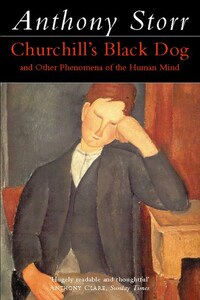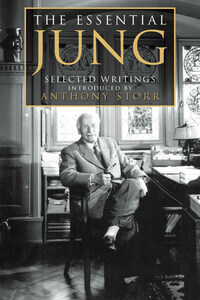HarperCollinsPublishers Ltd. 1 London Bridge Street London SE1 9GF
www.harpercollins.co.uk
Previously published in paperback by Flamingo 1990
Reprinted twice
First published in Great Britain by Collins 1989
Copyright © Anthony Storr 1989
Anthony Storr asserts the moral right to be identified as the author of this work
A catalogue record for this book is available from the British Library
All rights reserved under International and Pan-American Copyright Conventions. By payment of the required fees, you have been granted the nonexclusive, nontransferable right to access and read the text of this ebook on-screen. No part of this text may be reproduced, transmitted, downloaded, decompiled, reverse engineered, or stored in or introduced into any information storage and retrieval system, in any form or by any means, whether electronic or mechanical, now known or hereinafter invented, without the express written permission of HarperCollins ebooks
HarperCollinsPublishers has made every reasonable effort to ensure that any picture content and written content in this ebook has been included or removed in accordance with the contractual and technological constraints in operation at the time of publication
Source ISBN: 9780006375661
Ebook Edition © FEBRUARY 2013 ISBN: 9780007392476 Version: 2016-12-08
Freud defined psychological health as being able to love and work. The majority of the essays included in this collection are more concerned with the latter activity than with the former. I have long been interested in the psychology of the creative imagination. What internal dynamic forces impel men and women to devote so much time and energy to creative invention, whether in the arts or in the sciences? Although success may eventually bring the conventional rewards of fame and money, many artists and scientists struggle for years without attaining either, and some win recognition only posthumously. For example, Gregor Mendelâs experiments laid the foundation for the science of genetics. Yet it was not until sixteen years after his death that the value of his work became widely appreciated. Creative work must be inspired by drives which have nothing to do with worldly success.
Freud considered that imaginative activity originated from dissatisfaction.
We may lay it down that a happy person never phantasies, only an unsatisfied one. The motive forces of phantasies are unsatisfied wishes, and every single phantasy is the fulfilment of a wish, a correction of an unsatisfying reality. (Standard Edition, 9:146)
Freud tended to dismiss fantasy as illusory, escapist wish fulfillment, along with dreams and play; a view which I regard as profoundly mistaken, and which is dealt with at some length in the essay âPsychoanalysis and Creativity.â The great creative achievements of mankind are not to be equated with idle daydreams. Nor, as Freud claimed, is the creativity of the artist quite different from that of the scientist, an assumption which is examined in âWhy Psychoanalysis Is Not a Science.â
Yet there is a sense in which Freud was right to derive imagination from dissatisfaction. For is it not part of human destiny never to be content with what is, but always to be seeking something better? This âhunger of imagination,â as Dr. Johnson called it, operates at every level, from mundane desires for more food or money to utopian visions of universal harmony, whether on earth or in heaven. It is surely this hunger which accounts for manâs supremacy as a species. If man, like some insects, was preprogrammed to be more or less perfectly adapted to his environment, he would live a stereotyped life with neither the need to look for anything better nor the capacity to imagine it. But man is extremely flexible. Because he is not specifically adapted to one particular environment, he can adapt to many. Because he only has a few inbuilt responses, he is capable of learning, of invention, of assimilating novelty, and of creating symbols, a capacity considered in the essay âThe Psychology of Symbols.â Manâs creative adaptability paradoxically derives from his primary lack of adaptation.
Moreover, the life-span of both men and women extends far beyond the period of life during which reproduction is a prime concern. âAspects of Adult Developmentâ explores some of the changes which take place during the mid-life period and afterward, and underlines the fact that some of the works of art which we most treasure have been created by those past middle age.











